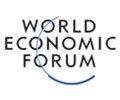
As transportation workers face an era of geopolitical and economic uncertainty, technological change, and rampant inequality, the concept of a “people-centered agenda” has become increasingly urgent.
There is real urgency for leaders to regroup and commit to community-centered collective action. Transport unions have a blueprint for a people-centred approach across the global supply chain.
In fact, two-thirds (66%) of people surveyed in 15 countries think the transport industry would be better off if there was greater involvement of transport workers in decision-making processes.
These are difficult times. Global cooperation is at its lowest point and conflict is increasing. There are large structural imbalances in the global economy that are causing disparities within and between countries to increase. Rules that control corporate greed must be put into practice.
Transportation workers can lead transformative change
Transportation workers are the engine of the global economy connecting critical supply chains, markets, and society. This means we are in a unique position to demand and lead transformative change.
For example, the International Transport Workers’ Federation (ITF) partnership with New Look, which has seen the British clothing company embed human rights due diligence into their transport supply chain.
This collaboration can serve as a model for how to protect workers from exploitation, while strengthening resilience in critical supply chains. ITF cooperation agreements help companies navigate their responsibilities to workers under new human rights due diligence rules.
Meanwhile in India, after two decades of campaigning by the ITF and its affiliates, the government finally agreed to union demands regarding a massive increase in the national pension scheme for millions of workers.
This historic victory for workers’ rights is groundbreaking and shows the power of collective action taken by ordinary people to create a more just and equal society.
Transport workers are on the front lines
Transportation workers are on the front lines of transitions that will determine the direction of our world.
As artificial intelligence (AI) and other advanced technologies reshape industry, ensuring that workers are part of the conversation is critical to creating safe workplaces and safe transportation systems: from dockers fighting for safe automation to pilots who attempted to maintain two pilots on the flight deck and a sailor. trained on the use of new sustainable fuels.
The transparency that results from the active involvement of transport workers in decision-making is the only way we can successfully confront a world that is being distorted by increasing populism, polarization, disinformation and propaganda.
The ITF has a bold vision for the next five years based on six demands: corporate accountability in supply chains, sustainability, safety, the future of work, rights and equality.
These demands form our blueprint for transforming the transportation industry. Transportation workers are not only the backbone of our economy; they push for solutions for a more just future.
Industrial relations has created security and prosperity for decades for workers and companies, using a community-centred approach in which workers and their unions collectively bargain for fair wages and safe working conditions.
As governments and organizations gather in Davos for the 2025 World Economic Forum Annual Meeting, the ITF can reaffirm its commitment to collective action.
We must ensure transport workers can exercise their right to form and join unions, we must commit to collective bargaining with transport workers. Shared prosperity is a real, worker-driven solution that will reduce inequality and lead to a just and equitable future for all workers.
Source: World Economic Forum




